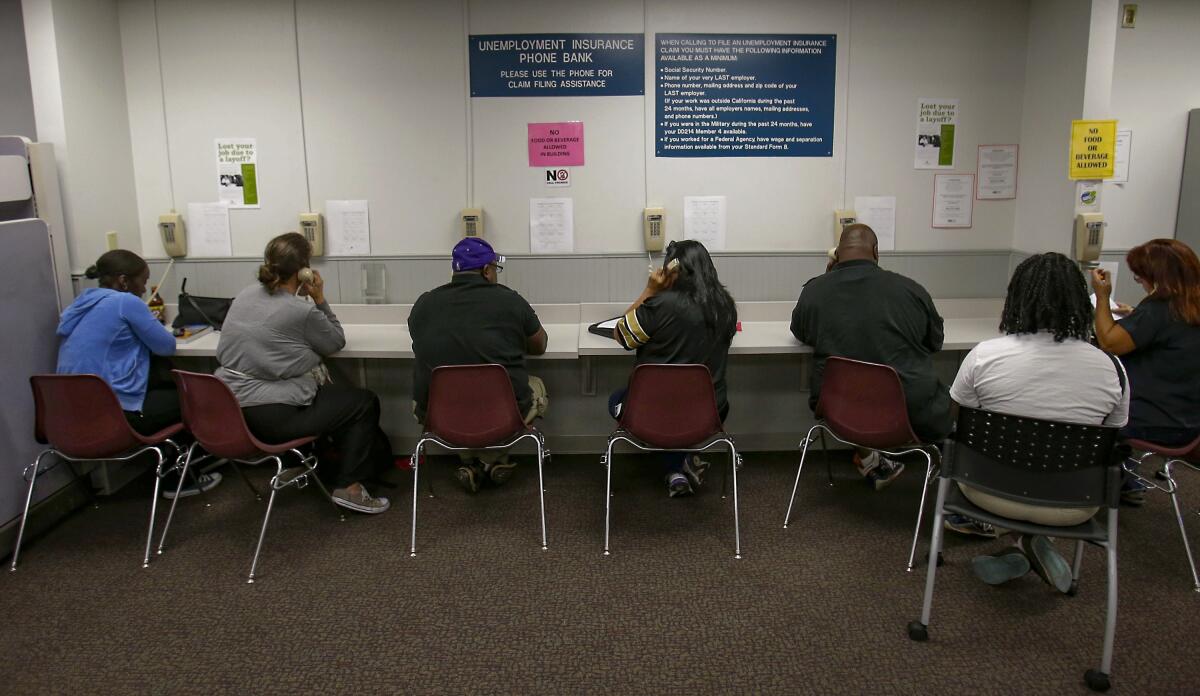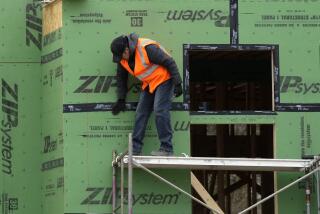Unemployment rises again in July, reviving worries of a recession

- Share via
WASHINGTON — U.S. job growth slowed sharply last month and the unemployment rate rose to a nearly three-year high of 4.3%, the latest sign of a cooling labor market, the government reported Friday.
Employers added 114,000 jobs in July, well below economists’ projections and down from an average monthly gain of 215,000 in payrolls over the previous 12 months, said the U.S. Bureau of Labor Statistics.
The jump in the unemployment rate, from 4.1% in June and 3.5% in July 2023, came amid increasing concerns of a weakening economy as high interest rates meant to fight inflation continue to weigh on businesses and consumers. Investors were rattled by Friday’s jobs report, which comes on the heels of a big decline in stocks the day before.
The Federal Reserve signaled on Wednesday that it could cut interest rates at its next meeting in September, but some analysts have said that policymakers are already behind the curve and that it’s possible they could even make a move before then.
“The dark storm clouds threatening the economy have moved in from off shore suddenly and are very, very real,” said Christopher Rupkey, chief economist at Fwdbonds, an economic and markets research firm. He warned of an impending recession.
The labor market has been unusually resilient and the unemployment rate remains low by historical standards. But the rapid increase from earlier this year, when the jobless figure was 3.7%, has revived worries of a recession among economists.
The slowdown in hiring last month was broad-based. Job growth was led by hiring in the healthcare sector. There were solid gains in construction and at hotels and restaurants.
But the struggling information sector, including the film industry and publishing, continued to shed jobs. Employment was flat in business and professional services, a category that includes high-paying computer software and engineering firms, and there was little change in finance, retail and manufacturing.
Average hourly earnings for all private-sector jobs were up 8 cents from June, to $35.07, which is 3.6% higher than a year ago — a tad above the rate of inflation.
More to Read
Inside the business of entertainment
The Wide Shot brings you news, analysis and insights on everything from streaming wars to production — and what it all means for the future.
You may occasionally receive promotional content from the Los Angeles Times.











